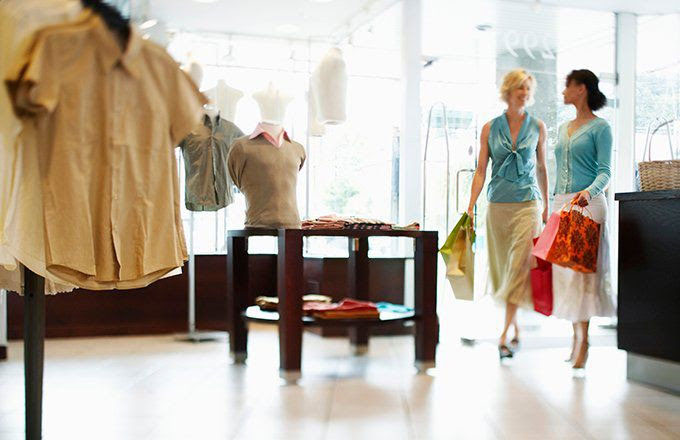Introduction
Customer choices are not always the ones that make the most incredible sense. If someone is entirely rational, they will always make rational and logical judgments. To put it another way, they will always act in a way that is to their best advantage (including in their own best financial interest). On the other hand, recent research in behavioural psychology has demonstrated that people's actions aren't always rational.
In addition, many people who shop at luxury retailers are not in a financial situation to be able to afford the items they buy. It's possible that an indication of this can be found in the fact that such a significant number of people in the United States hold such large sums of consumer debt. This phenomenon might be evidence that many people in the United States aren't always looking out for their financial interests, as it's probable that many aren't doing so. Even though a handbag of comparable quality and durability can be purchased for under $100, some specific individuals are willing to pay thousands of dollars for a luxury brand, the handbag.
Products with a Higher Price and a Better Quality Typically Have

People have a propensity to disregard the drawbacks of a product and instead focus on the benefits of that product, which tends to be a very shortsighted strategy. People, for example, are willing to wait up to an entire day for a mobile to deliver its most recent product, regardless of whether or not it is a phone. Even though the company keeps increasing the prices of its other products at an ever-increasing rate, the prices of mobile phone accessories continue to go down. Even though consumers are aware of these realities, they continue to gush over mobile products even though they are not technologically innovative or superior. [C]onsumers continue to gush over mobile products even though consumers continue to gush over mobile products
On the other hand, it is common knowledge that products made by other companies can be purchased for one hundred times less money while being one hundred times more helpful and having qualities that are superior to those that are manufactured. Despite this, mobile revenues are increasing yearly as a direct result of the company's committed customer base.
There is a widespread misconception among many people that the inexpensive cost of these things suggests that they are of inferior quality; however, this is not the case. Consequently, individuals come to feel that higher-priced luxury items will be of higher quality as a mentality that develops as a result. Even when there is evidence to the contrary, people tend to believe you get what you pay for. This is especially true about financial matters. Consequently, it is pointless to try to do so regardless of whether the products are of higher or lower quality or whether they are more or less expensive.
The Role of Self-Esteem in Consumer Decisions
If you have low self-esteem, you might try to find validation in the form of simple possessions that will put the spotlight on you and draw other people's attention to you. This frequently happens when people cannot pay for things considered to be showy purchases. They can invest in pricey material items in the hope that it will make them feel more at ease in their new environment.
There is a good chance that the ease of purchasing items online (which often only requires a few clicks to finish) is also a contributing factor to the stratospheric ascent of this practice. Because of the internet, those shoes or scarf that cost $500 you've been eyeing are now just a few clicks away. This is fantastic news for shops that want to capitalise on customers' need for a quick fix because it makes it easier for them to do so.
They get a sense of fulfilment from purchasing expensive stuff, as was described before in the sentence. Some individuals, particularly those who have exerted a significant amount of effort, may feel entitled to reward themselves with a tiny little reward. They accomplish their goal by treating themselves to an expensive luxury item they could never hope to purchase.
Originality Is Key
For the sake of argument, let's say that knockoff versions of high-end goods may be purchased for the same amount as the real thing. If that is the case, nobody will purchase them (even if they look identical). This is because people are aware, on some level, that the luxury object they possess is not original.
You have to be kidding yourself if you think that makes any logic. If buying luxury goods is all about trying to impress other people and give the impression that you belong somewhere, then why shouldn't we be happy and content with what we have? This is because we have been accustomed to our surroundings because we have spent our entire lives in this environment. You wouldn't be interested in playing with a toy even if it was an identical replica of your favourite one and looked precisely the same as the one you already had. You get these thoughts due to the belief that the second one is a carbon copy of the first one. We have an emotional stake in our belongings, whether toys or luxury products and as a result, we are always on the hunt for the genuine article, whether it be a toy or an expensive item.

Conclusion
There are many different motivations for people to purchase luxury products. All of these explanations are connected to our feelings and the memories associated with these extravagantly priced luxury items in some way. You might opt to purchase them regardless of whether or not you are in a financial position to do so to get a sense of how you will feel if you own them. As a result, you will purchase luxury products for reasons such as a sense of success after putting in a lot of hard work or acquiring acceptance from others.




